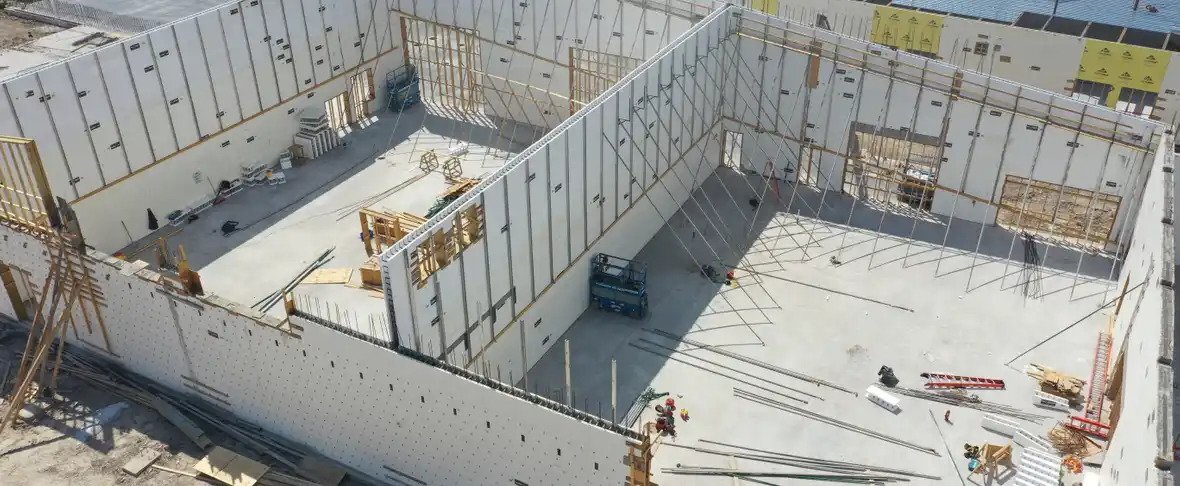ICFs and Severe Weather
The steel reinforced concrete, which can cure stronger than normal concrete because of the foam insulation, can withstand winds of over 200 MPH, and projectile debris traveling over 100 MPH. There are dozens of eye witness examples of ICF homes taking EF5 tornadoes head on with the walls still standing.

What is the Concrete Temperature Limit?
Concrete is a versatile and durable construction material that is predominantly used in both commercial and residential structures. It’s essential to understand concrete’s thermal properties, specifically its temperature limits, to optimize its strength and durability.

The Backbone of Modern Construction: Steel Reinforced Concrete Walls
White Paper: Effects of the Thermal Envelope on Home Energy Efficiency
In this white paper, Fox Blocks explore the science behind creating a good thermal envelope with insulated concrete forms.

ICF Storm Shelters: Superior Protection Against Severe Weather
As extreme weather events increase in frequency and intensity, the demand for reliable storm protection has never been more urgent. Insulated Concrete Forms (ICFs) offer an advanced solution for constructing storm rooms that deliver unparalleled safety, durability, and energy efficiency.

Building Maintenance Management 101
Property managers are realizing the crucial role of thorough building maintenance in protecting property value, functionality, and safety. This article explores the essential components of building maintenance management and emphasizes the importance of using innovative building solutions for sustainable, safe, and well-maintained properties.

Essential Elements of Passive House Design

Modern Museum Architecture: Designing for Flow, Preservation, and Comfort
Museums shape how people interact with history, art, and knowledge — long before they step into the first exhibit. Layout and design choices influence not only the visitor journey but also long-term preservation, energy use, and operational function.
Senate Proposes to Incorporate Energy Performance into the Mortgage Loan
Democrats and Republicans came together recently to introduce the HOMES Act in Congress that would provide rebates up to $8000 to homeowners who invest in energy saving performance improvements to their homes